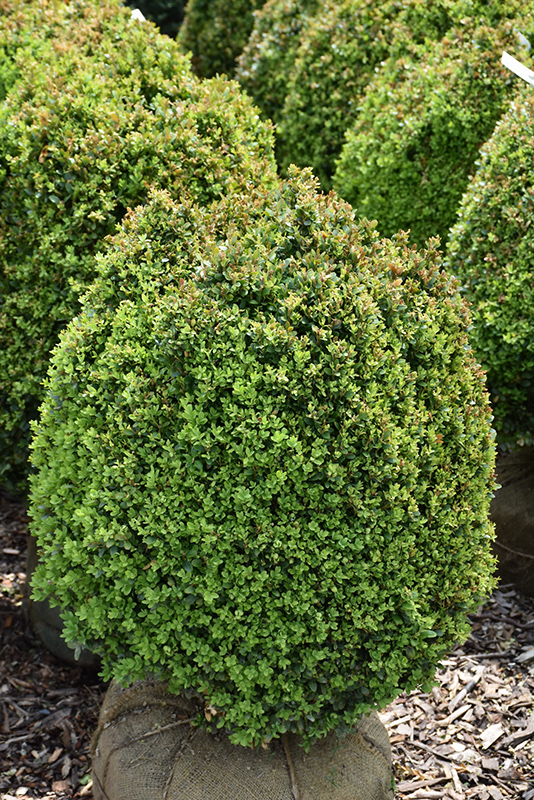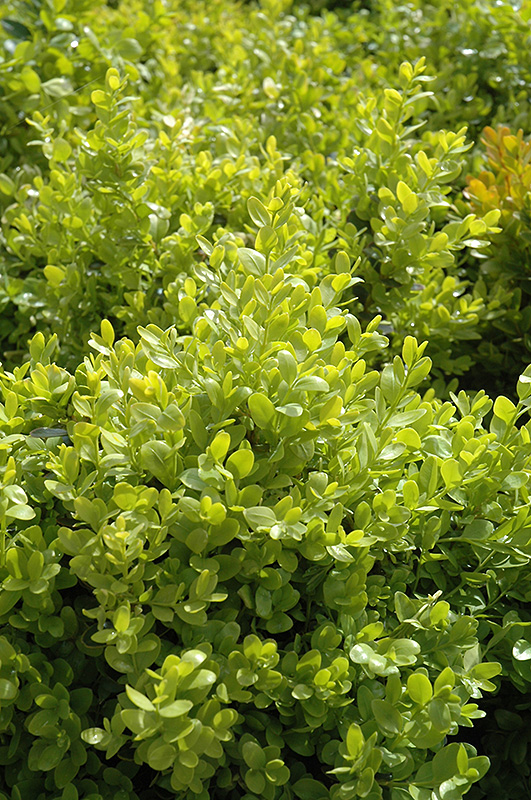Dwarf English Boxwood
Buxus sempervirens 'Suffruticosa'
Height: 3 feet
Spread: 4 feet
Sunlight:
![]()
![]()
Hardiness Zone: 4b
Other Names: Common Box
Description:
A dwarf, broadleaf evergreen with fine textured, small, glossy green leaves; perfect for topiary and formal shaped hedges; takes pruning exceptionally well, give some protection from winter sun and wind
Ornamental Features
Dwarf English Boxwood is primarily valued in the garden for its decidedly oval form. It has rich green evergreen foliage. The small glossy round leaves turn coppery-bronze in the fall, which persists throughout the winter.
Landscape Attributes
Dwarf English Boxwood is a dense multi-stemmed evergreen shrub with a shapely oval form. It lends an extremely fine and delicate texture to the landscape composition which should be used to full effect.
This is a relatively low maintenance shrub, and can be pruned at anytime. It is a good choice for attracting bees to your yard, but is not particularly attractive to deer who tend to leave it alone in favor of tastier treats. It has no significant negative characteristics.
Dwarf English Boxwood is recommended for the following landscape applications;
- Mass Planting
- Hedges/Screening
- General Garden Use
- Topiary
- Container Planting
Planting & Growing
Dwarf English Boxwood will grow to be about 3 feet tall at maturity, with a spread of 4 feet. It tends to fill out right to the ground and therefore doesn't necessarily require facer plants in front. It grows at a slow rate, and under ideal conditions can be expected to live for 40 years or more.
This shrub does best in full sun to partial shade. It prefers to grow in average to moist conditions, and shouldn't be allowed to dry out. It is not particular as to soil type, but has a definite preference for alkaline soils. It is highly tolerant of urban pollution and will even thrive in inner city environments, and will benefit from being planted in a relatively sheltered location. This is a selected variety of a species not originally from North America.
Dwarf English Boxwood makes a fine choice for the outdoor landscape, but it is also well-suited for use in outdoor pots and containers. Because of its height, it is often used as a 'thriller' in the 'spiller-thriller-filler' container combination; plant it near the center of the pot, surrounded by smaller plants and those that spill over the edges. It is even sizeable enough that it can be grown alone in a suitable container. Note that when grown in a container, it may not perform exactly as indicated on the tag - this is to be expected. Also note that when growing plants in outdoor containers and baskets, they may require more frequent waterings than they would in the yard or garden.

